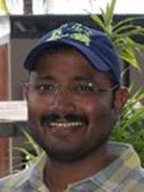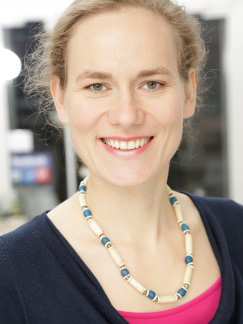30 August 2016
View Webinar Content
Presentation—Introduction to the webinar and panelists
Presentation—Butchaiah Gadde: EnergyPlus Guidelines: Planning for Improved Energy Access and Productive Uses of Energy
Presentation—Monika Rammelt: Productive Uses of Energy Experiences, Publications, Guidance and Tools
Presentation—Ana Pueyo: Productive Uses of Energy: Unlocking Socioeconomic Benefits and Economic Viability of Energy Access Infrastructure
Transcript—Webinar audio transcript
The Clean Energy Solutions Center, in partnership with the United Nations Development Programme (UNDP), the Deutsche Gesellschaft für Internationale Zusammenarbeit (GIZ) GmbH and the Institute of Development Studies (IDS) at the University of Sussex, hosted this webinar to provide an overview of tools, methods and approaches, including state of the art research findings, on how to promote entrepreneurial activities within energy access interventions.
The webinar provided an overview of research findings on pro-poor energy access and poverty impacts on energy infrastructure. The training highlighted relevant tools and guidelines for promoting productive, entrepreneurial uses of energy from an energy access practitioner point of view.
Speakers in the webinar covered the following topics:
- Dr. Ana Pueyo, Research Fellow, Institute of Development Studies, talked about her research on pro-poor energy access and findings on how to maximize poverty impacts in energy interventions.
- Dr. Butchaiah Gadde, Project Manager, UNDP, presented UNDP’s EnergyPlus Guidelines, a toolkit for planning, designing and implementing energy access projects with a focus on productive uses of energy and livelihood improvements.
- Monika Rammelt, Energy Advisor, GIZ, presented a set of tools and publications for project practitioners about how to integrate promotion of productive uses of energy in energy access programs.
Presentations were followed by an interactive question and answer session with the audience.
Panelists
 Ana Pueyo, Research Fellow, IDS
Ana Pueyo, Research Fellow, IDS
Ana Pueyo is a Research Fellow at IDS, where she leads energy and climate change research. At IDS, she has been the convenor of the research theme “Pro-poor access to electricity”, as part of a £11- million DFID Accountable Grant. The program looks at the key elements energy supply initiatives need to consider to achieve poverty impacts. She is also the Principal Investigator of the research project “Green Growth Diagnostics for Africa”, which analyses systematically the barriers preventing higher investment in renewable energy in Kenya and Ghana and the optimal policies to address these. She is also leading research looking at the impact of electricity provision through minigrids for small businesses in Kenyan villages. She has more than 13 years of academic and consultancy experience on energy and climate policy, having advised extensively policymakers in the European Union and private sector actors including energy utilities, sectoral associations, airlines and renewable energy project developers. Ana is trained as an Economist, holds a PhD in Industrial Engineering by the Technical University of Madrid, as well as an MSc in Management of Information Systems by the London School of Economics.
 Butchaiah Gadde, UNDP
Butchaiah Gadde, UNDP
Dr. Butchaiah Gadde is working as a Project Manager for Sustainable Energy Solutions for Rural Livelihoods (SES) and Strengthening the Resilience of Communities through Community-Based Disaster Risk Management (CBDRM) projects in DPR Korea. Prior to this, he worked as a Technical Specialist for UNDP Bangkok Regional Hub (formerly known as Asia-Pacific Regional Centre in Bangkok) in the design of projects that can be programmed for Global Environment Facility (GEF), UNDP TRAC and other donor resources, including technical assistance and technical advice for climate change projects. Before joining as staff, Butchaiah used to work for UNDP, GIZ and ADB as a consultant. Dr Butchaiah Gadde has about 16 years of professional experience in the areas of renewable energy, environmental engineering and climate change. Dr. Butchaiah has experience working with international development agencies, consulting firms and NGOs. As a consultant and expert, he carried out assignments for international agencies such as UNDP, GIZ, ADB, WHO, UNEP, ICEF, INEP, AusAID, and USAID as well as governmental and civil society organizations in renewable energy, environmental engineering and climate change related issues.
 Monika Rammelt, Energy Advisor, GIZ
Monika Rammelt, Energy Advisor, GIZ
Monika Rammelt is an energy advisor at GIZ in Germany (Deutsche Gesellschaft für Internationale Zusammenarbeit GmbH). In her role there, she is advising the Federal German Ministry of Economic Cooperation and Development (BMZ) on pro-poor energy access infrastructure, decentralized energy supply, and cooking energy solutions. She is also involved in strategic and technical advisory work to GIZ’s energy access interventions in Asia and Africa and liaising with international organizations such as World Bank, Global Alliance for Clean Cookstoves, SE4All, as well as international NGOs, industry associations and the private sector. Prior to her assignment with GIZ Germany, Monika spent three years working for GIZ in Uganda, focusing on rural electrification, market development for off-grid products, community-run micro hydropower and carbon market development. Monika has about 10 years of professional experience in the areas of renewable energy, energy access, mini grids, cooking energy and climate change. She studied Political Science and African Studies at the University of Leipzig, Germany and the Institute d’Etudes Politiques at the University of Bordeaux, France.
